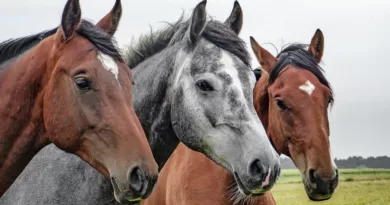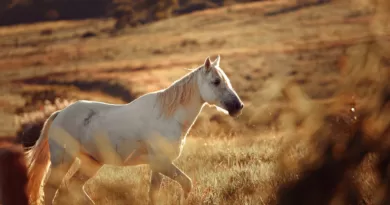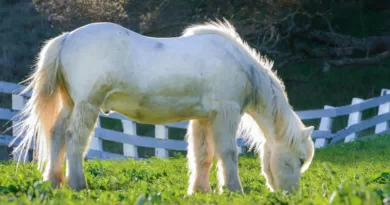The Horse Age Span: Understanding the Lifespan of Our Equine Companions
In the realm of equestrian aficionados, a question that continually piques our curiosity is, ‘How long do horses live?’ As fervent admirers of these magnificent creatures, we recognize the paramount significance of guaranteeing that our equine companions experience a life that is not only enduring but also brimming with vitality and contentment. Within the pages of this extensive guide, we shall embark on a journey to delve into the intricacies of the equine lifespan, unveiling the myriad factors that shape their longevity, and unveiling strategies to enhance their overall well-being.
Introduction
Horses, with their majestic beauty and remarkable strength, have been our loyal partners for centuries, playing pivotal roles in agriculture, transportation, sports, and companionship. To truly appreciate these magnificent creatures, it’s imperative that we delve into the dynamics of their lifespan.
The Average Horse Age Span
On average, horses live to be about 25 to 30 years old. Nonetheless, it’s important to note that this is a rough estimate, as several factors play a role in determining the lifespan of each individual horse.
Factors Influencing Horse Longevity
- Breed: Different horse breeds have varying lifespans. Smaller breeds like ponies tend to live longer, often reaching 30 years or more, while larger breeds may have a shorter lifespan, around 20 to 25 years.
- Genetics: Just like in humans, genetics play a significant role in a horse’s longevity. Horses with a family history of good health and longevity are more likely to live longer.
- Nutrition: Proper nutrition throughout a horse’s life is crucial for its overall health and lifespan. A balanced diet with appropriate vitamins and minerals can significantly impact longevity.
- Exercise: Regular exercise is essential for maintaining a horse’s physical and mental well-being. Proper training and activity can extend their lifespan.
- Veterinary Care: Routine veterinary check-ups and vaccinations are essential to catch and address health issues early, ultimately prolonging a horse’s life.
- Environment: The living conditions and environment in which a horse is kept also affect its longevity. Clean, safe, and stress-free living conditions promote a healthier life.
- Care and Attention: The love and care given by horse owners play a vital role in a horse’s happiness and longevity. A horse that receives proper care and attention is more likely to thrive.
Recognizing the Signs of Aging
As our equine companions age, it’s crucial to be aware of the signs that indicate they may need extra care or medical attention.
Common Signs of Aging in Horses
- Dental Issues: As horses age, their teeth wear down, leading to dental problems. Regular dental check-ups are essential.
- Weight Loss: Older horses may struggle to maintain their weight. Adjusting their diet and providing specialized senior horse feed can help.
- Joint Problems: Arthritis and joint issues can become more prevalent with age. Supplements and medications can alleviate discomfort.
- Decreased Stamina: Older horses may tire more quickly. Adjust exercise routines accordingly.
- Dull Coat: A horse’s coat can lose its shine with age. Proper grooming and nutrition can help maintain a healthy coat.
Longevity Through Proper Care
To ensure your horse age span a long and fulfilling life, consider implementing the following tips:
Tips for Extending Your Horse’s Lifespan
- Regular Vet Visits: Schedule routine veterinary check-ups to catch health issues early.
- Balanced Diet: Consult with a equine nutritionist to create a diet tailored to your horse’s age and needs.
- Proper Exercise: Maintain a regular exercise regimen to keep your horse fit and mentally stimulated.
- Dental Care: Address dental issues promptly to prevent pain and eating difficulties.
- Comfortable Shelter: Provide a clean and comfortable living environment with protection from extreme weather conditions.
- Companionship: Horses are social animals. Ensure they have suitable equine companions for mental well-being.
See Also: How long do horses live? Amazing Facts About Horses’ Life
1. How long do horses typically live?
Horses generally live to be about 25 to 30 years old, but this can vary based on several factors such as breed and care.
2. Do smaller horse breeds live longer than larger ones?
Yes, smaller horse breeds like ponies tend to have longer lifespans, often reaching 30 years or more, while larger breeds may live around 20 to 25 years.
3. Can genetics influence a horse’s lifespan?
Absolutely. Genetics play a significant role in a horse’s longevity. Horses with a family history of good health and longevity are more likely to live longer.
4. How important is proper nutrition for a horse’s lifespan?
Proper nutrition is crucial throughout a horse’s life. A balanced diet with the right vitamins and minerals can significantly impact their longevity.
5. Is exercise essential for maintaining a horse’s lifespan?
Yes, regular exercise is essential for a horse’s physical and mental well-being. Proper training and activity can extend their horse age span.
6. How often should I take my horse for veterinary check-ups?
Routine veterinary check-ups and vaccinations are essential to catch and address health issues early, ultimately prolonging your horse’s life. Aim for at least one check-up per year.
7. Can a horse’s living conditions affect its longevity?
Yes, the environment in which a horse is kept can significantly affect its longevity. Clean, safe, and stress-free living conditions promote a healthier life.
8. Does the love and care from horse owners impact a horse’s lifespan?
Certainly. The love and care provided by horse owners play a pivotal role in a horse’s happiness and longevity. Consequently, a well-cared-for horse is significantly more likely to thrive.
9. What are some common signs of aging in horses?
Common signs of horse age span include dental issues, weight loss, joint problems, decreased stamina, and a dull coat.
10. How can I address dental issues in an aging horse?
To address dental issues, it’s essential to schedule regular dental check-ups with a qualified equine dentist.
11. What should I do if my older horse is losing weight?
If your older horse is losing weight, consult with a veterinarian and consider adjusting their diet to include specialized senior horse feed.
12. Can older horses still enjoy companionship with other horses?
Indeed, horses are social animals, and ensuring they have appropriate equine companions can significantly enhance their mental well-being and overall happiness.
Conclusion
In our exploration of understanding the age span of horses, we’ve gained a profound appreciation for the intricate factors that impact the longevity of our equine companions. From breed and genetics to nutrition and attentive care, a multitude of elements are in play. By remaining vigilant, offering meticulous care, and nurturing the profound connection we share with our horses, we have the power to not only prolong their lives but also forge enduring memories together.
As you set forth on this adventure alongside your cherished horse, keep in mind that wisdom, tenderness, and affection serve as the foundation for a lasting and blissful companionship.
Enjoyed this article? You May Also Like:
- Learn in 5 minutes about Cryotherapy for Horses
- Penicillin in Horses; Impeccable Guide in 10 minutes
- Excede Antibiotic For Horses, Fantastic Facts in 5 minutes
- The Science of Oxytocin in Horses: How This Hormone Influences Equine Behavior
- Can Horses Swim? Everything You Need To Know About Horse Swimming






